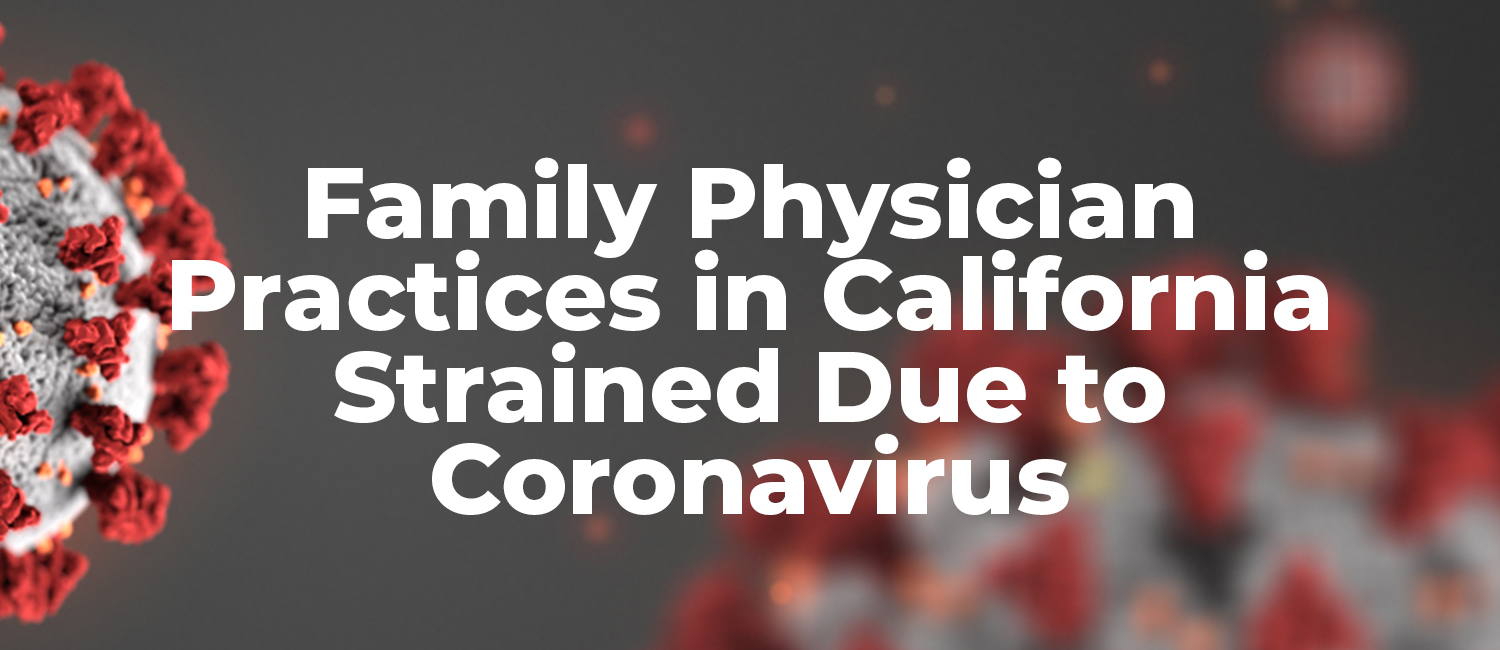
Survey highlights pressure on front-line physicians
San Francisco – The California Academy of Family Physicians (CAFP) is urging lawmakers to consider the impact the novel coronavirus, or COVID-19, is having on primary care physician practices across the state.
“A recently released national study says that almost 80 percent of primary care clinicians are experiencing ‘severe’ or ‘close to severe’ strain as a direct result of COVID-19,” said CAFP President, Walter Mills, M.D. “And a survey conducted by CAFP last month shows that 42 percent of family physicians in California are experiencing extreme financial impact. As physicians, we want to ensure that we are able to help our patients in this time of need, and also be able to provide preventive and primary care once this pandemic passes.”
Family physician practices provide vital, continuous care to patients of all ages, including preventative care, management of chronic diseases, and reduction in hospitalization for patients. An increase of one primary care doctor per 10,000 people has been shown to result in:
“The COVID-19 pandemic has ripped the band-aid off to reveal the wounds of a dysfunctional health care system that has already grossly under-invested in primary and preventive care,” said CAFP CEO Lisa Folberg. “Family physicians, in addition to being the backbone of our healthcare ecosystem, are often small businesses. We need to do more to ensure these front-line physicians are able to keep their doors open. “
CAFP is working together with other physician advocacy organizations on a state and national level to find solutions to the issues facing family physicians during this time, including payment restructuring, among other potential policies.
“The threat to primary care physician practices is immediate and severe, and the impact of practice closures will be long-lasting and incredibly detrimental to the health and well-being of the communities they serve. We urge public and private payers to act immediately to shore up these practices with prospective payments,” added Dr. Mills.